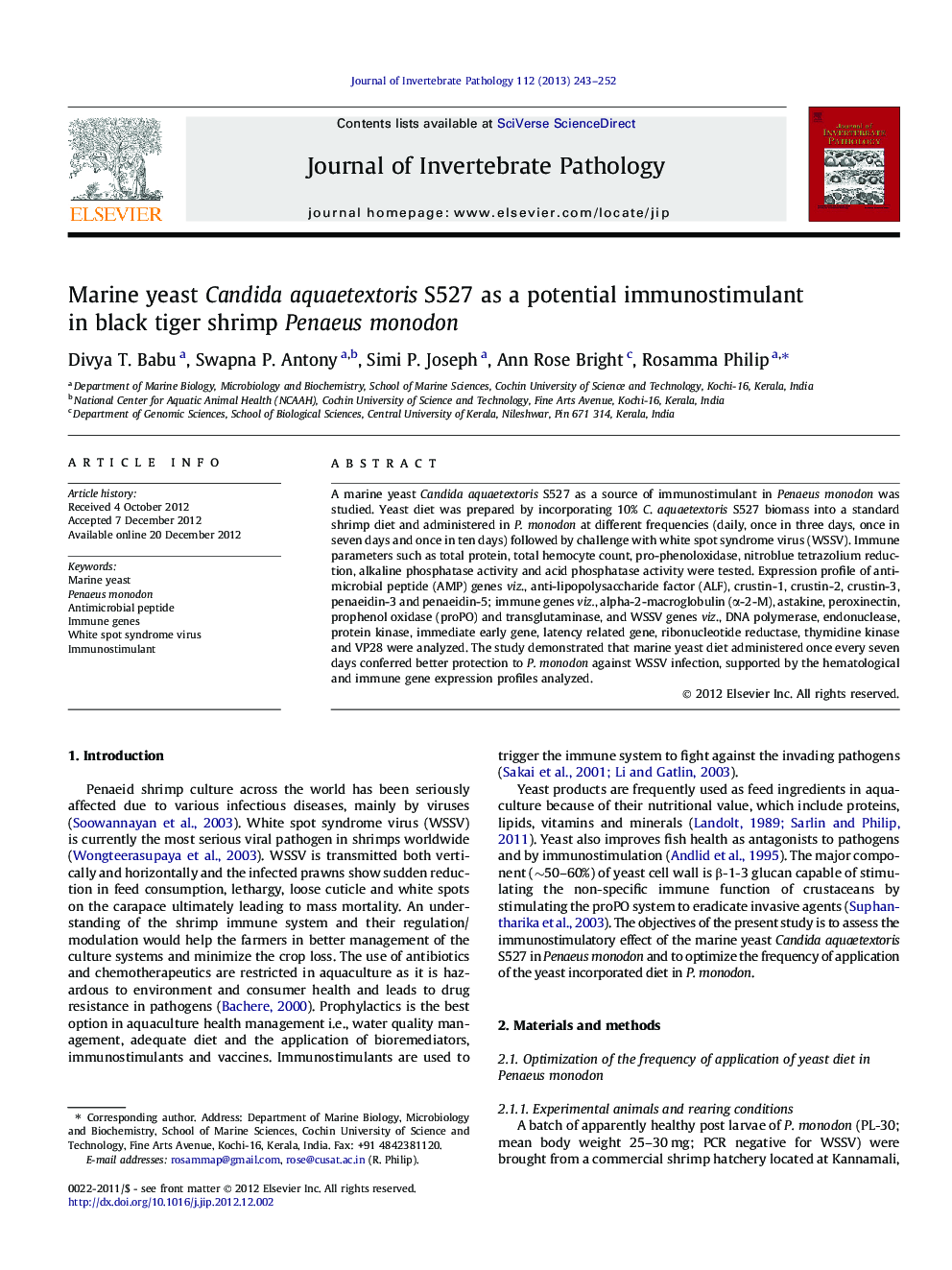| Article ID | Journal | Published Year | Pages | File Type |
|---|---|---|---|---|
| 6389569 | Journal of Invertebrate Pathology | 2013 | 10 Pages |
A marine yeast Candida aquaetextoris S527 as a source of immunostimulant in Penaeus monodon was studied. Yeast diet was prepared by incorporating 10% C. aquaetextoris S527 biomass into a standard shrimp diet and administered in P. monodon at different frequencies (daily, once in three days, once in seven days and once in ten days) followed by challenge with white spot syndrome virus (WSSV). Immune parameters such as total protein, total hemocyte count, pro-phenoloxidase, nitroblue tetrazolium reduction, alkaline phosphatase activity and acid phosphatase activity were tested. Expression profile of antimicrobial peptide (AMP) genes viz., anti-lipopolysaccharide factor (ALF), crustin-1, crustin-2, crustin-3, penaeidin-3 and penaeidin-5; immune genes viz., alpha-2-macroglobulin (α-2-M), astakine, peroxinectin, prophenol oxidase (proPO) and transglutaminase, and WSSV genes viz., DNA polymerase, endonuclease, protein kinase, immediate early gene, latency related gene, ribonucleotide reductase, thymidine kinase and VP28 were analyzed. The study demonstrated that marine yeast diet administered once every seven days conferred better protection to P. monodon against WSSV infection, supported by the hematological and immune gene expression profiles analyzed.
Graphical abstractDownload full-size imageHighlights⺠Candida aquaetextoris was investigated as a potential immunostimulant in Penaeus monodon. ⺠Better protection against WSSV in 7-day feeding interval compared to 1- and 10-day. ⺠Proved that the frequency of administration of immunostimulants is very important.
